My Superpower: Tansy Rayner Roberts
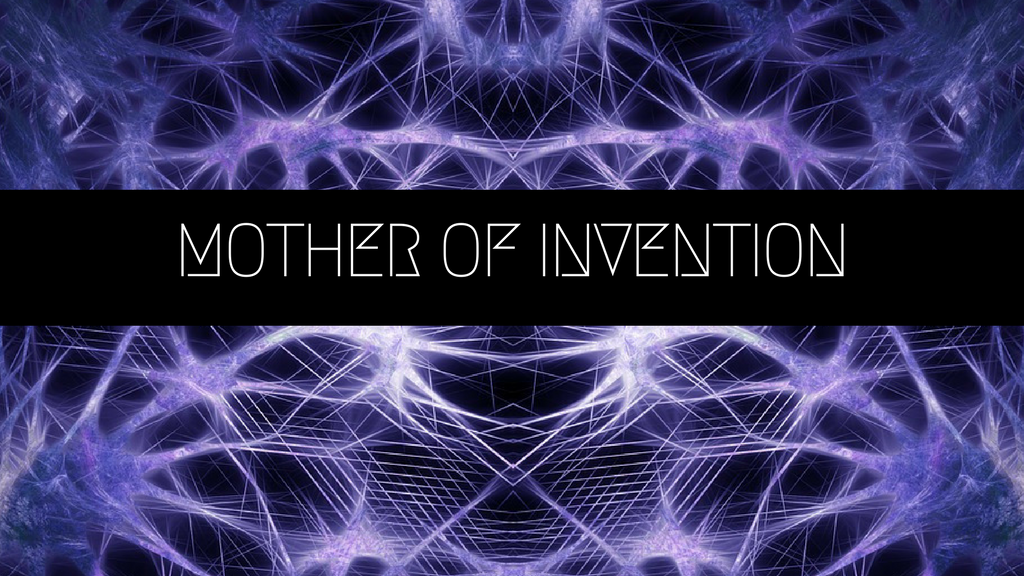
My Superpower is a regular guest column on the Skiffy and Fanty blog where authors and creators tell us about one weird skill, neat trick, highly specialized cybernetic upgrade, or other superpower they have, and how it helped (or hindered!) their creative process as they built their project. Today we welcome Tansy Rayner Roberts. My superpower is making extra work for my publisher. When your publisher is one of your best friends, and you’re invested in her success almost as much as your own career, it’s a very different relationship than when they are a distant, shiny corporation in a big city somewhere in the world. I’ve had quite a few publishers over the last 19 years as a professional author, and I am very attached to many of them, but Twelfth Planet Press feels like my baby almost as much as it belongs to its publisher, Alisa Krasnostein. I’ve been there from the beginning; watched her projects and aesthetic evolve. I was there as the idea for ‘hey what about monthly collections by female authors’ developed into a massive, sprawling 4 year project.
Book Review: Upside Down: Inverted Tropes in Storytelling, edited by Jaym Gates and Monica Valentinelli
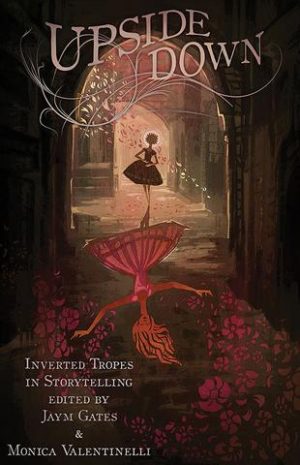
Tropes get a lot of bad press even as we crave them. People expect the Happily Ever After for a romantic comedy, but the fiftieth inevitable betrayal by the mentor in an action movie gets seen as being cliched. Movie after movie gets made, and makes box office, with a Chosen One, especially as an origin story, and at the same cry decry it as being more of the same. The website TV Tropes is a time suck, as one can get lost for hours following links on various tropes in movies, books and more, falling into a rabbit hole of storytelling conventions. So what can be said that is new about tropes? How can they be used, subverted, and rearranged? Upside Down: Inverted Tropes in Storytelling, a diverse anthology and essay collection edited by Jaym Gates and Monica Valentinelli, sets out to do just that.
Book Review: Galactic Empires, edited by Neil Clarke
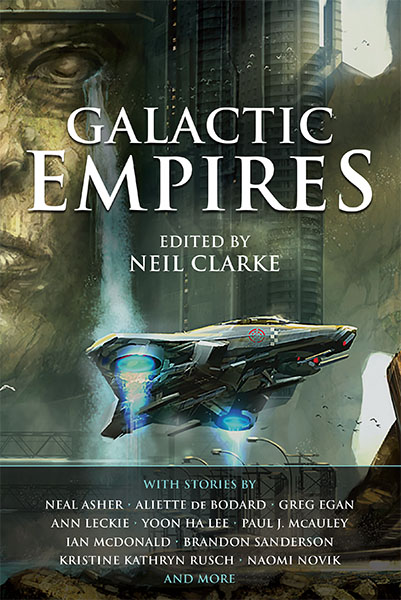
In the 1970s Brian Aldiss published a seminal anthology of SF stories. Called Galactic Empires, it was a two-volume set of over two dozen stories set in such realms, with authors ranging from Arthur C. Clarke, Isaac Asimov and Poul Anderson to A.E. Van Vogt and Clifford Simak. The age of the stories spanned from the 1940s to the 1970s, not only showing a wide range of themes and ideas revolving around Galactic Empires, their rises, heights and falls, but also showing the breadth of style changes in the genre over that period. It was not only a snapshot of the subgenre, right at the time that Star Wars was dominating the cinema and changing SF forever, but a look backward to the roots of the subgenre as well. Now, in 2017, Neil Clarke has stepped into the very large shoes that Aldiss has left, and created his own anthology called Galactic Empires. Clarke’s collection of stories have the same remit as Aldiss’: To show the Galactic Empire, in all of its forms, and with a wide range of voices, styles and authors. Clarke’s choices all date from the 21st century. While this does mean that Clarke’s anthology misses the 1980s and ’90s, he does manage to capture more recent eras in glorious diversity. For all of how important the Aldiss anthology was and is, Aldiss’ general overlook of half of the SF field and having an entirely American/British viewpoint was a weakness in his anthology. Only one female author, Margaret St. Clair, was included in Aldiss’ two-volume collection. By comparison, out of the stories Clarke has gathered, nearly half are by women. Further, Clarke’s choices includes significant contributions from the likes of Yoon Ha Lee, Tobias Buckell, and Aliette de Bodard.
Book Review: Defying Doomsday, Edited by Tsana Dolichva & Holly Kench
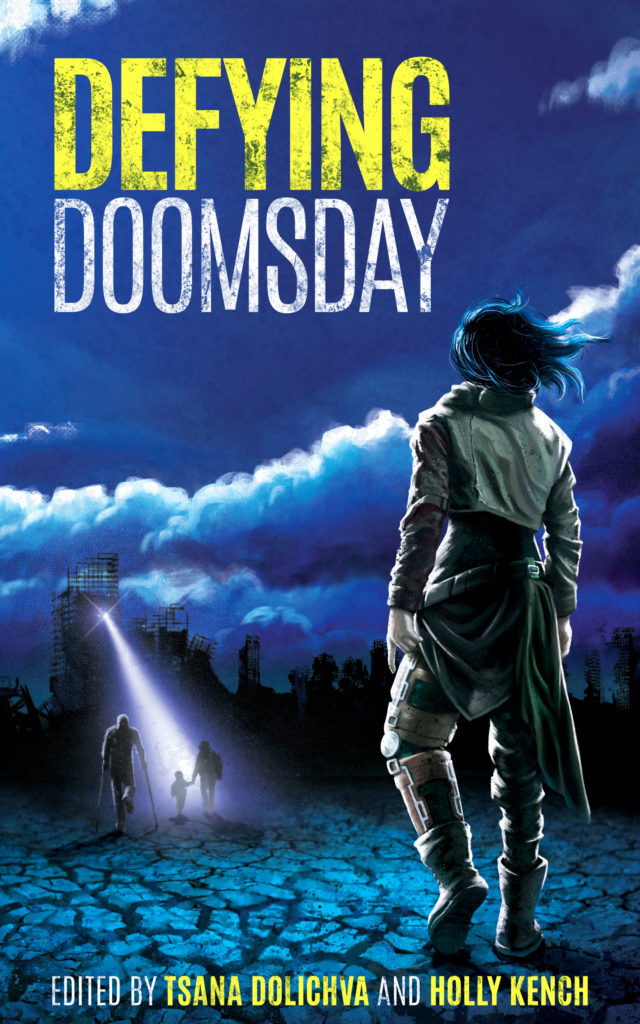
“People with disability already live in a post-apocalyptic world.” – Robert Hoge This crowd-funded anthology of post-apocalyptic fiction showcases the theme of disabled or chronically-ill protagonists. Edited by Tsana Dolichva and Holly Kench, the collection features many Aussie female writers (though not exclusively) and names likely both familiar and new to speculative fiction readers. With all of its diversity in characters, apocalyptic setting, and featured disability/illness, Defying Doomday is remarkably consistent in tone and quality. Out of fifteen stories there is only one that failed for me, and that is completely due to personal taste. (I am done with giving stories in the second person a chance beyond two pages).
Book Review: STORIES FOR CHIP: A TRIBUTE TO SAMUEL R. DELANY, Edited by Nisi Shawl & Bill Campbell
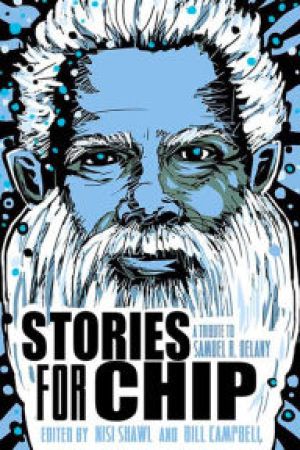
Publishing since the age of twenty, Samuel R. Delany is a highly respected novelist and literary critic alike. Familiarly known as “Chip”, Delany has written science fiction and fantasy (SFF) known for pushing boundaries, for challenging the notions of speculative genres, and experimenting with approaches to literature in general. Delany’s writing both subverts conventions and transcends fiction to explore social realities, most notably the existence of the Other. Indeed, as a man who could be described with terms such as academic, homosexual, polymath, African-American, and intelligent, Delany writes from the point of view of the Other, a spectrum of under-represented perspectives within SFF. Both Delany’s fiction and nonfiction have been hugely influential, inspiring, and appreciated, partly due to this unique vision. However, his works have also resonated so strongly because Delany’s vision is not just unique, but uniquely brilliant, honest, and perceptive. With all of its challenges and transgressions against comfortable familiarity, Delany’s work strikes universal human chords, conveying both beauty and progressive encouragement.
Book Review: To Shape the Dark edited by Athena Andreadis
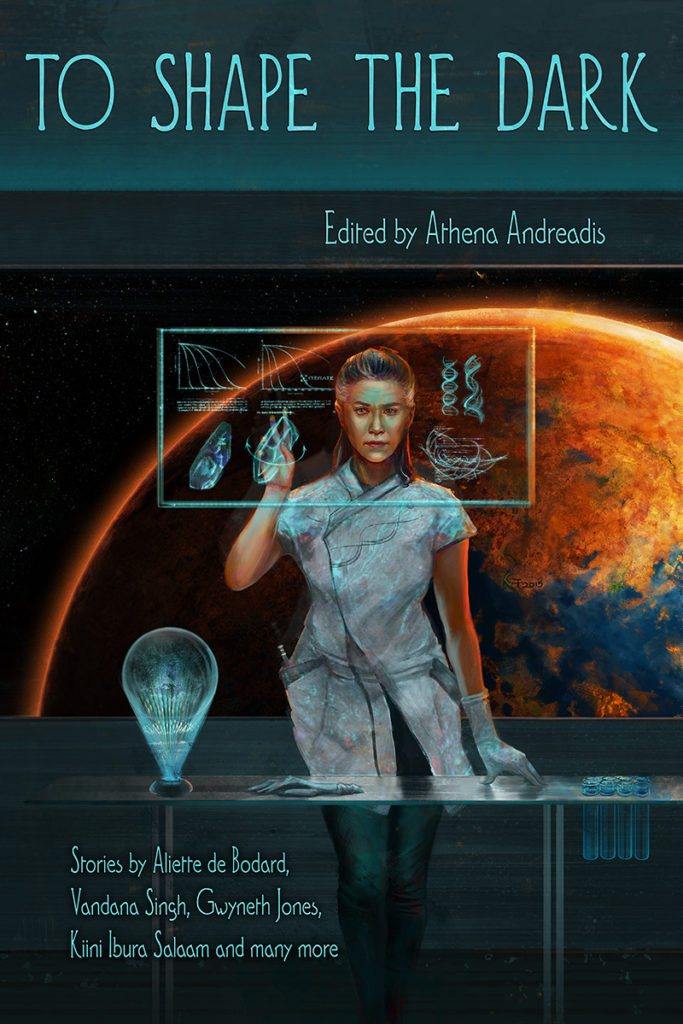
Athena Andraedis’ anthology The Other Half of the Sky was an explicit attempt at highlighting and fighting a severe tendency for female characters in science fiction to be secondary characters, love interests or even just wallpaper by gathering an excellent group of writers to bring forth a set of stories with female protagonists in science fictional settings. The fact that they were women informed their choices, outlooks, and actions, and the stories help correct the mistaken idea some have, ‘Chekov’s Lesbian’, that such diversity has to be of primary plot importance to be justified. To Shape the Dark, the newest anthology from Andraedis, continues the tradition of female protagonists in science fiction settings by focusing on female protagonists in science fiction stories who, specifically, are doing science. Science Fiction as midwife for future scientists and in general appreciation for and inculcating science literacy in its readership is a long and important tradition in the field. This anthology helps that tradition along by showing readers, of any gender, that women can and do have an equal role to play as scientists in science fiction stories, and in our society.

